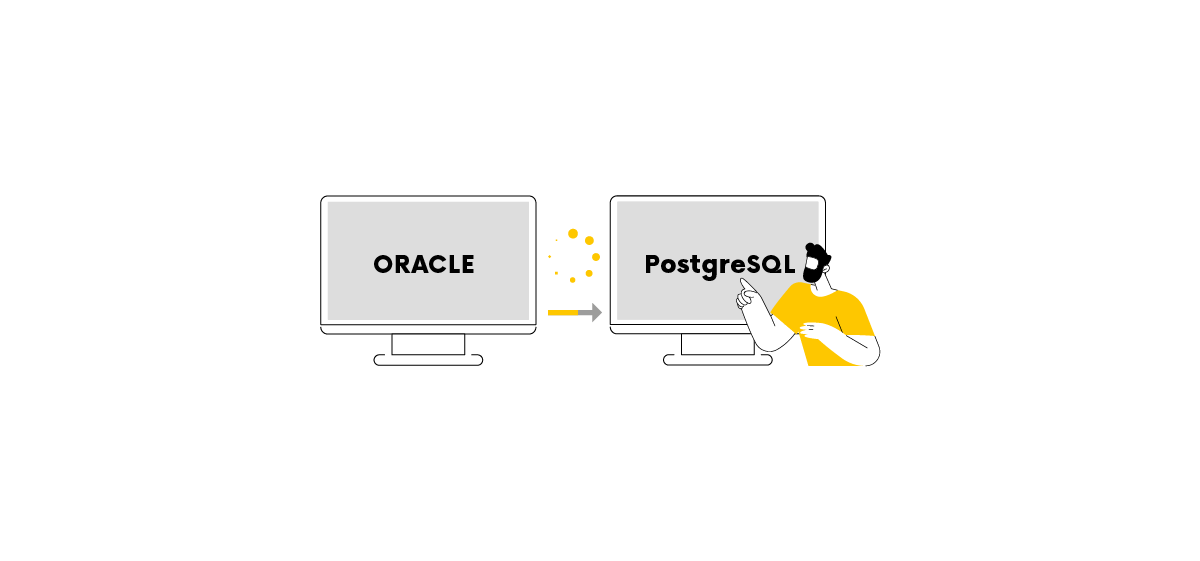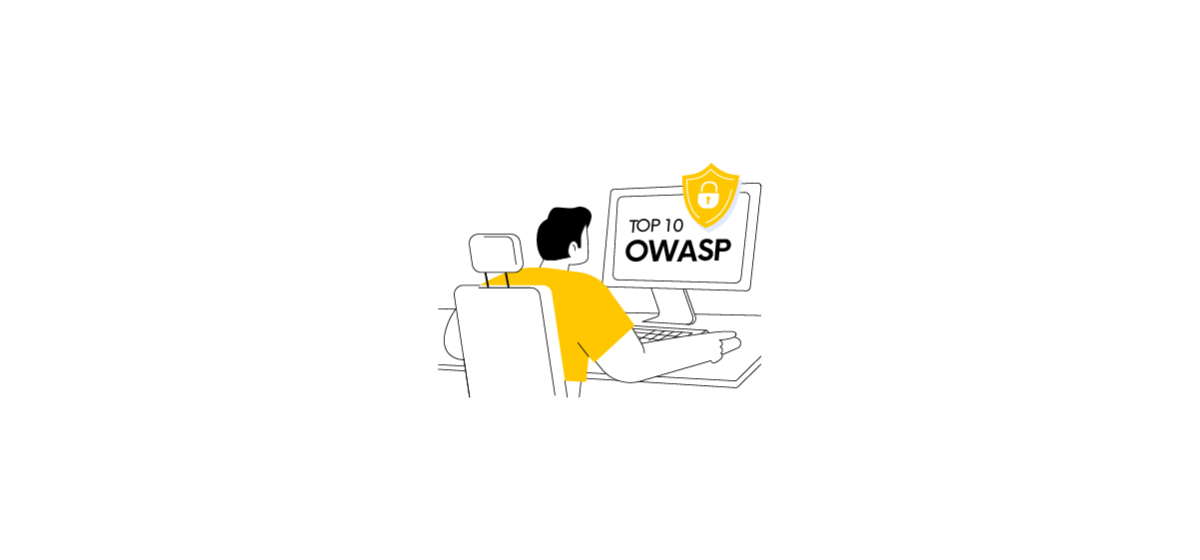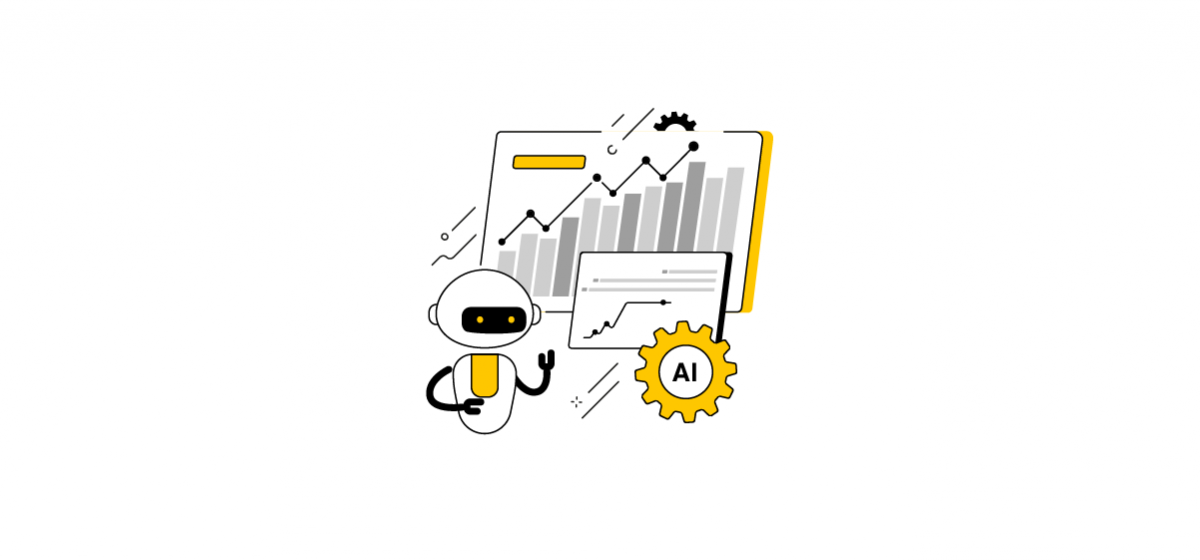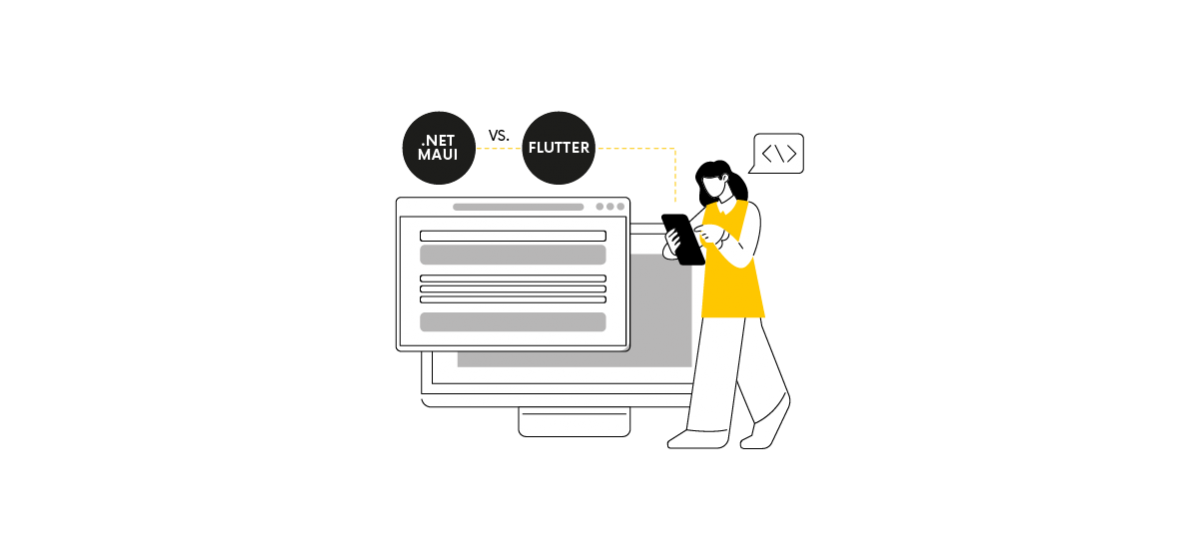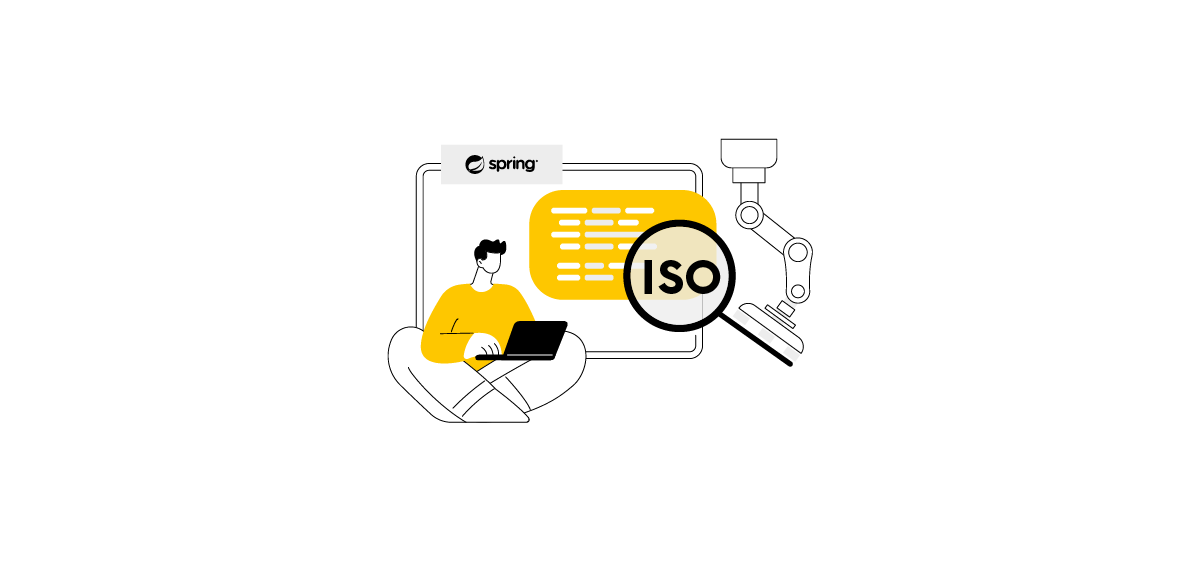If you’ve run an ERP system on an RPG code platform for years, migrating to another technology poses a significant challenge. Despite the negative connotations of an outdated system, refined custom procedures and features provide your company with a competitive edge. However, with time passing, reconsider modernizing your system by transferring your current logic to a language maintained by a new generation.
Digital transformation has made it imperative for business leaders to find effective ways to modernize legacy systems. According to 2023 figures from the
Government Accountability Office (GAO), the U.S. government annually spends over $100 billion on information technology, with a significant portion allocated to the operation and maintenance of aging systems. Despite their high maintenance costs, these systems are susceptible to hacker attacks. U.S. companies spent nearly $600 billion in the private sector in 2018 to maintain older systems.
“For many organizations, legacy systems are seen as holding back business initiatives and the business processes that rely on them. When a tipping point is reached, application leaders must turn to application modernization to be able to remove obstacles.” Stefan Van Der Zijden, vice president of analytics at Gartner
Migrating legacy applications to newer platforms revitalize a company while persisting with
outdated software leads to resource wastage on compatibility issue fixes. These problems elevate costs and place a company at a competitive disadvantage, hindering it from realizing its full potential. Prioritizing the migration of legacy systems is crucial for companies.
Modernizing applications also means
delivering better business value and maintaining flexibility and risk tolerance.
IBM encourages companies to transition legacy RPG code to
Java/J2EE, prompting many to seek streamlined migration approaches.
This article delves into the benefits, challenges, and best practices of moving from RPG to Java, providing insights for informed decisions that align with your company’s current needs and future growth aspirations.
What is an RPG?
RPG, short for Report Program Generator, is a
programming language primarily linked to business applications and enterprise software development. Developed by IBM in the 1950s for the System/3x series of minicomputers, it was later adapted to support larger mainframe systems like the IBM System/360 and AS/400. Historically significant in enterprise software development, particularly for IBM’s midrange and mainframe systems,
RPG excels in efficiently managing data-centered tasks. This makes it well-suited for applications demanding extensive database and file processing.
Why was there a need to change from RPG to another technology?
The main reason for
migrating RPG to a newer technology lies in the
lack of specialized programmers available to maintain and develop code in this language. RPG is a proprietary language exclusive to IBM products for mainstream computers, specifically within the IBM operating system. Working with RPG necessitates specialized knowledge of IBM hardware and software, making the recruitment of replacement programmers time-consuming and challenging. This demands significant effort from the recruitment team and contributes to an increase in the software maintenance budget. Transitioning to modern technology stacks offers the opportunity to harness upcoming technologies and benefit from advanced features.
Companies that have previously developed ERP system using RPG or COBOL are facing the necessity to
rewrite them in the near future, perhaps within a year or two. This arises from the realization that these languages do not represent the future of technology. The rewrite doesn’t necessarily have to adopt Java; it could involve embracing other emerging modern technologies with a substantial pool of programmers.
Why migrate to Java?
Java is a popular programming language extensively utilized in enterprise software development. Notably, it is a well-established and thoughtfully developed technology crafted by some of the world’s best programmers. Its advantages make it an excellent choice for creating scalable, flexible, and integrated applications.
- Scalability. Java applications facilitate horizontal scalability, which is achieved effortlessly by incorporating additional servers into the system. This capability effectively manages extensive traffic and data loads without compromising performance.
- Flexibility. Java, an object-oriented programming language, supports key concepts such as inheritance, polymorphism, and encapsulation. These features contribute to creating modular, reusable, and maintainable code.
- Multithreading allows developers to create applications that can perform multiple tasks simultaneously.
- Excellent integration capabilities. Java applications integrate various technologies and platforms seamlessly, including databases, web services, and messaging systems. This capability enables the creation of intricate, distributed applications that can communicate with each other effortlessly.
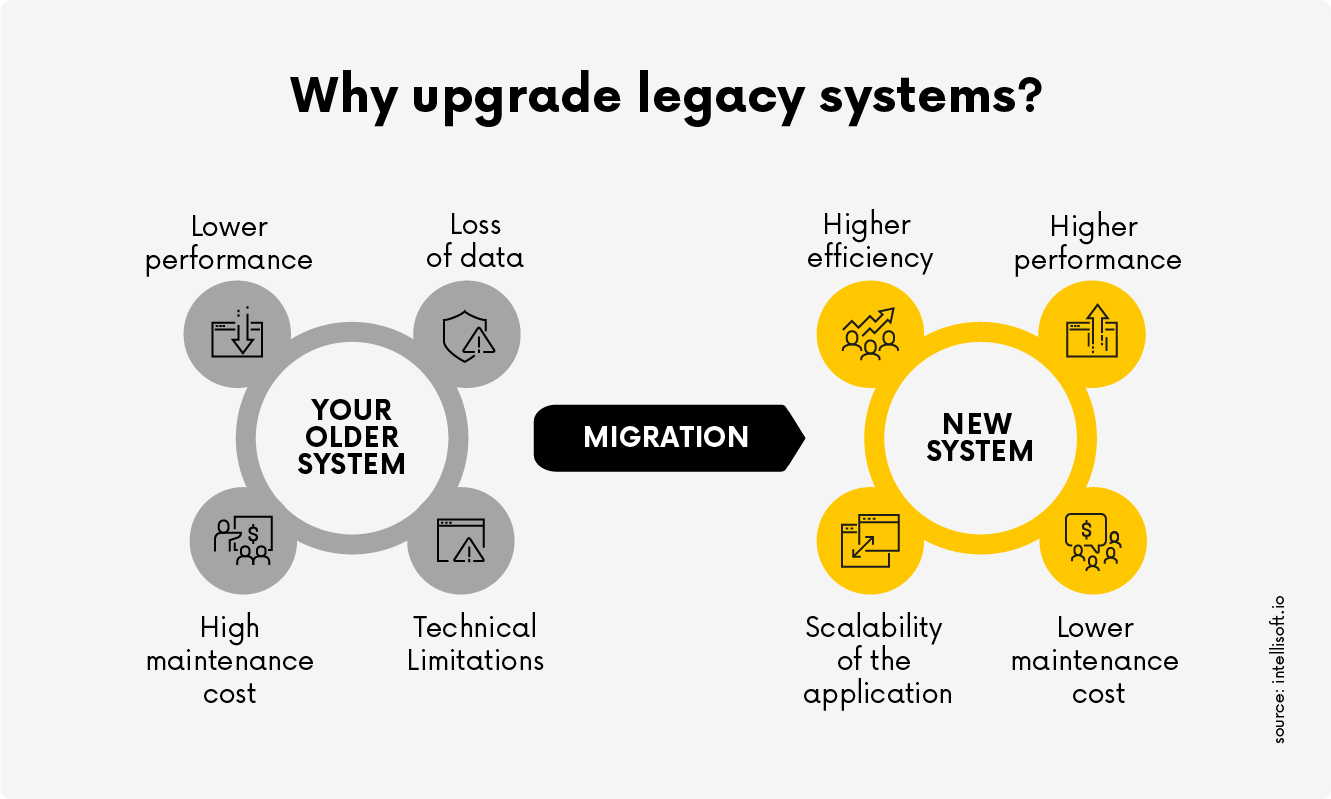
Migration in ERP system – benefits
What are the challenges of migrating from RPG to Java in ERP system?
Migrating from RPG to Java is a complex process, and developers may encounter various challenges. Here are some common issues that can pose difficulties during the migration:
The absence of documentation is a challenge, especially for ERP systems written in the eighties or nineties. During that period, there was no anticipation that a code rewrite might be necessary in the future. This creates a situation where understanding the precise logic of the application requires delving into the code and deciphering its rules.
- Underestimating complexity
Migrating from RPG to Java involves navigating different paradigms and structures. Underestimating this complexity can result in project delays and unforeseen challenges. Before starting work, it is crucial to thoroughly analyze the existing RPG code base and understand its intricacies.
- Lack of developers who understand RPG technology
In the current market, fewer active specialists are proficient in RPG coding. The absence of assistance from such experts can complicate the understanding of application logic, especially when dealing with non-standard and undocumented code.
- Lack of detailed planning
Planning is pivotal for a successful migration. Without a detailed plan, critical aspects may be overlooked, resulting in issues later in the process. An
agile migration plan should be established to define clear priorities and allocate ample time and resources to each stage.
Avoid a straightforward translation of RPG code into Java without considering code quality. Neglecting quality can lead to a system that is more challenging to maintain and less efficient. Migrating logic 1:1 may result in longer, unreadable code, slowing down the system. Failing to understand dependencies during the migration process can turn a program that takes 15 minutes in RPG into one that takes several times longer in Java. ?
If there is a specific migration timeframe for moving a particular functionality, there may be limited time to comprehend the RPG logic fully. Engaging a
team of experienced professionals who have migrated numerous similar applications becomes essential. Their expertise allows for the adept utilization of appropriate Java functionality without necessitating extensive code restructuring.
Programming migration constitutes one aspect of the activity;
testing and subsequent patching are nearly as crucial. Testing is a pivotal phase in the migration process, and neglecting it can result in errors, performance issues, and unforeseen behavior. You must invest in thorough testing, encompassing automated, unit, integration, and system testing. If the programmer confirms the logical results of the tests, the ERP consultant conducts manual testing, leveraging comprehensive knowledge of the entire system’s processes. Detailed descriptions are provided to programmers in the event of errors, facilitating easier corrections.
- Ignoring performance issues
RPG and Java exhibit distinct performance characteristics, and overlooking this during migration can lead to the system falling short of performance expectations. Monitoring performance throughout the migration process and promptly addressing any bottlenecks is crucial.
- Ignoring security best practices
Security should be a top priority during migration to ensure that a new system written in Java is resilient to vulnerabilities and threats. Key aspects such as authentication, authorization, and data encryption should be thoroughly considered and implemented.
The transition from RPG to
Java necessitates a shift in skills and mindset. As part of the code review, experienced Java developers play a guiding role in comprehending the syntax of an RPG project. Subsequently, it is essential to practice the migration process, commencing with simple applications and progressing to more complex ones while also becoming familiar with internal documentation.
Effective communication with the customer is crucial, as it can lead to misunderstandings and discrepancies between the migrated system and business requirements. Moreover, customers frequently employ experienced RPG developers working on the older system, making contact with them the optimal way to comprehend the application logic. It is imperative to keep stakeholders informed about the workflow, gather feedback, and ensure the migration aligns with their expectations.
Migrating from RPG to Java is a significant endeavor, and hurrying the process can result in mistakes and oversights. It is essential to take the time to plan meticulously, execute carefully, and ensure the completion of each phase.
Summary
Migrating from RPG to Java represents a technical upgrade and a strategic move toward future-proofing ERP systems for success in a dynamic and evolving enterprise landscape. This forward-looking decision extends beyond the technical realm, contributing to an organization’s agility, competitiveness, and long-term success.
If you would like to modernize your ERP system,
contact us. We aspire to be your partner in this endeavor, offering tools and services for converting RPG code to Java. This initiative aims to preserve your custom application logic and pave the way for new business opportunities.
